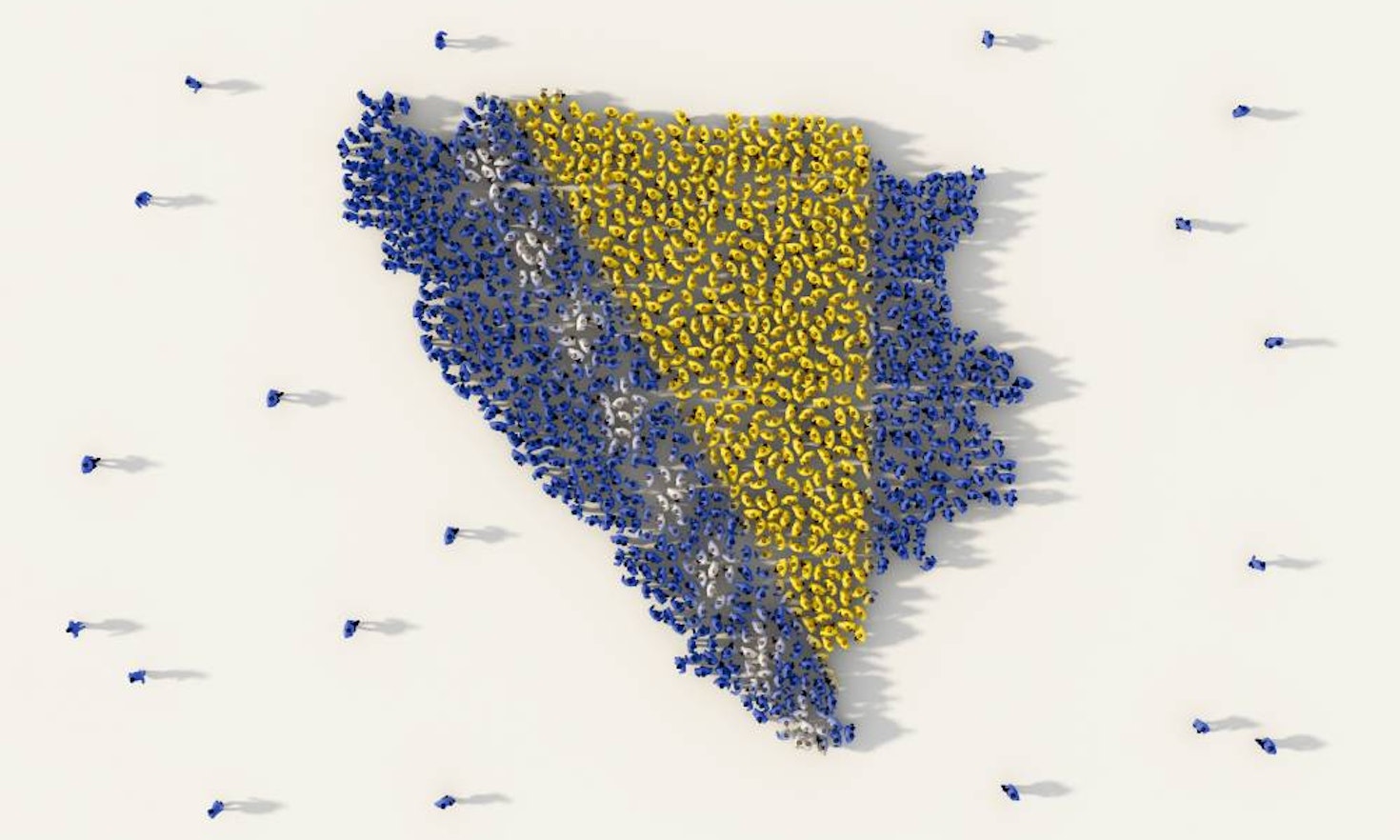
Why the Ukrainian flag in the window matters
 Victoria Vlasenko
Victoria Vlasenko
Participation of the constituent peoples (Bosniaks, Croats, and Serbs) in the system of government of Bosnia and Herzegovina is an integral and very important element of its heterogeneous legal, political and social order. Conversely, however, the exclusion of those who are non-constituent[1] members from the system of government appears to be an equally central and enduring aspect of this political order. Unlike their almost non-existent influence at State level, those that are considered as non-constituents do enjoy certain rights in the Federation of Bosnia and Herzegovina and the Republic of Srpska. Nevertheless, they are, in formal and legal terms, effectively excluded.
Taking into account the perennial political rhetoric, be it of ruling parties or the opposition, it is clear that the provisions ensuring a more meaningful role for non-constituent peoples in the system of government in Bosnia and Herzegovina are virtually worthless. This is particularly clear when one considers the consistent failure to implement the Sejdić and Finci v. Bosnia and Herzegovina, Zornić v. Bosnia and Herzegovina, and Pilav v. Bosnia and Herzegovina judgments.[2] The constitutional guarantee in Bosnia and Herzegovina of equal political rights for non-constituent peoples has been upheld by the judicial authority in Strasbourg. Nevertheless, while constitutionally the non-constituents have been granted equality under the law, in reality they are denied these rights.
The constitutional preference for parity of constituent peoples is the measure of power at all levels of government. This implies that in order to maintain the equal influence of each constituent peoples, the principle of parity has to also be maintained. This, however, does not leave much space for the non-constituent peoples. It seems that the constituent peoples would rather deny their participation in government than permit equality. It is evident that there has been a systematic and proscriptive denial of rights to the non-constituents, even in the government of the Federation of Bosnia and Herzegovina and the Republic of Srpska. Those who are not constituent peoples are the recipients of certain “non-rights” and are forced to accept the negation of their constituental rights. Among a number of more or less important provisions, some stand out. Despite their guaranteed representation in the House of Peoples of the Federal Parliament, there is no non-constituent peoples’ caucus; only the constituent peoples can run for President and Vice President of the Federation; only the constituent peoples can propose amendments to the Constitution of the Federation, and the amendments are adopted by a simple majority vote which includes the majority of delegates from each constituent people, etc. Similarly, the non-constituent peoples face restrictions and injustices at the cantonal level in the Federation. The non-constituent peoples in the Republic of Srpska are only slightly better off than those in the Federation, having a little more access to the governmental system. Although they do not enjoy omniparity, the facts, however, confirm that the non-constituents are guaranteed greater equality than their counterparts in the Federation. They are guaranteed the right to establish a caucus of the so-called Others in the National Assembly of the Republic of Srpska and the Peoples’ Council of the Republic of Srpska. They also have the possibility of proposing amendments to the constitution of the Republic of Srpska. Still, the president and vice-presidents of the Republic of Srpska can only be elected by the constituent peoples, etc. The disadvantaged position of the non-constituents is highlighted by the fact that some repesentatives in both entities declared themselves as members of the non-constituents when, in fact, they act on behalf of a specific constituent block. Most of the representatives in both legislatures who declared themselves to be non-constituents actually belong to one of the constituent peoples. They are mainly nominated by nationalist parties that are trying to present themselves as multiethnic and more inclusive. However, this convenient conversion of the constituents into pseudo-constituents does not properly address the issue of participation of the non-constituents in the government of the Federation; instead, it only proves that ethnic conformism is a prevailing factor.
What is clear is that the treatment of non-constituents remains a block to Bosnia and Herzegovina’s membership of the European Union. The representatives of the European Union have been unsuccessfully emphasizing the need to address the position of non-constituents, while the governments in Bosnia and Herzegovina have been stalling. This proves that neither finds it absolutely necessary to address the polysynthetic issue of the position of the non-constituents in Bosnia and Herzegovina. Still, in the light of the latest debacle concerning the candidate status, the constituent nobility in Bosnia and Herzegovina will have to be more energetic in implementing the above mentioned judgments. One solution would certainly be to change the current constitutional position of the non-constituent peoples, providing them with full equality. In order to ensure this equality, it is also essential to implement the abovementioned judgments of European Court of Human Rights. Otherwise, the discriminatory treatment of the non-constituent peoples in the Federation of Bosnia and Herzegovina and the Republic of Srpska will continue to serve as a barrier to EU membership.
[1] Usually defined as national minorities and the nationally undeclared, or simply as the Others.
[2] In 2009, the European Court of Human Rights, ruling in the case of Sejdić and Finci v. Bosnia and Herzegovina established that the constitutional provisions which render the persons who do not identify themselves as one of the constituent peoples ineligible for election to the Presidency of Bosnia and Herzegovina as discriminatory. In 2014, in the case of Zornić v. Bosnia and Herzegovina the European Court reinforced the previous decision. In 2016, in the case of Pilav v. Bosnia and Herzegovina the Court held that a Bosniak living in the Republic of Srpska is prevented from standing for the election to the Presidency, which the Court deemed to be discriminatory.
*This post derives from a larger research project funded by the Fundamental Research Foundation Flanders (Fonds Wetenschappelijk Onderzoek – FWO).
 | Maja Sahadžić is a researcher in comparative constitutional law at the University of Antwerp. She believes running is mental. The saber is her favorite blade when she is fencing. Her cooking skills are mainly negative, but she makes paranormally delicious peanut butter chocolate chip cookies. She does not laugh, she cackles. |
This content is licensed under a Creative Commons Attribution 4.0 International license.

 Victoria Vlasenko
Victoria Vlasenko
 Tommaso Librera
Tommaso Librera
 Francisco Javier Romero Caro
Francisco Javier Romero Caro